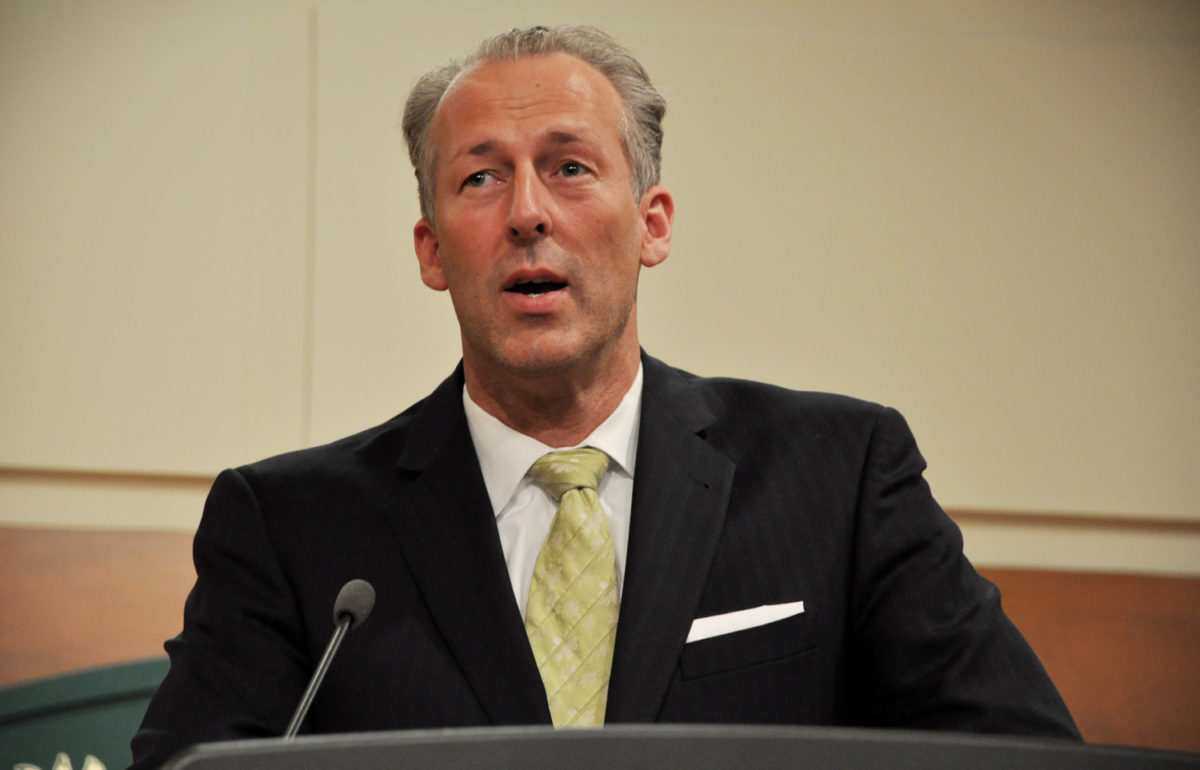
Toronto Mayor Rob Ford is mentally ill and living with an addiction, and his family is not helping, said VP of Canada’s mental health commission Patrick Dion.
“I’m sad about Rob Ford because his family is enabling him to be even further unwell.”
Dion spoke at St. Thomas on Thursday night to an audience of approximately 300 about mental health in Canada. He said the media’s coverage of Ford is upsetting.
“In Rob Ford’s case, the media should stop using the word ‘crazy’,” he said. “You should use other words to describe someone who experiences mental health issues.”
Dion travelled from Ottawa to speak about the work the mental health commission has done for Canada. He was invited by STU journalism professor Jan Wong, a friend of his.
Wong published her book Out of the Blue in 2012 about her own battle with depression. Wong sent a copy to Dion, who was moved by her story. After, they became friends and have since worked together on mental health awareness initiatives.
The biggest reason Dion ended up working on mental health issues in Canada roots deeper than just a job.
“It was a little less than twenty five years ago at a university campus just like this that my brother, Peter, began his journey to recovery from mental illness at a time far less enlightened than today.”
In 1987, Dion’s brother first began to experience mental health problems, which would later be diagnosed as bipolar disorder.
It was during Peter’s first year in medical school at Western University that his mind started working differently.
Peter wouldn’t admit he had a problem and wouldn’t take his medication or receive treatment. Dion said it was hard to watch but his family was adamant about getting him the help he needed.
“The lens in which I now see the world, and in particular my respect for those living with mental illness, will be forever changed.”
The mental health commission only began in Canada about six years ago, said Dion.
“We boast in Canada about having a world class health care system, but until just recently the health care system in Canada had an orphan and that was the mental health care system.”
The commission focuses on initiatives such as addressing stigma and discrimination, research, translating the research into information easy to understand and encouraging action.
A UNB psychology student asked Dion during the lecture if Harper was going to stop cutting mental health research funding. Dion said Harper has actually done a lot for mental health.
“Stephen Harper and I don’t share politics. He’s on one side of the divide and I’m on the other. For all the things I could be critical of him about, I will applaud him for doing what other governments failed to do. He created a commission. He gave it money. He gave it life and we’ve made progress,” said Dion. “So, Harper’s not the boogeyman when it comes to mental health.”
Dion also said more money is coming in from the public and private sectors towards mental health than ever before because some of the stigma is gone.
Dion’s brother Peter is now doing well.
“Peter is living his life within the limitation of his illness,” he said. “But he is actually living a very meaningful life now.”
Dion said he is glad that the stigma has gotten better than 25 years ago when his brother and family were going through it, but there is still more work to be done.
“There will be a time for Fredericton, its university community and its residents to viciously play a role in eliminating the incriminating burden of stigma,” said Dion. “This next decade will be an extraordinary time for bringing mental illness out of the shadows forever.”
